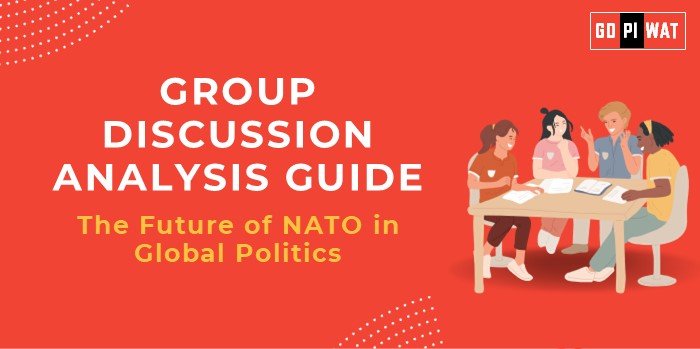📋 The Future of NATO in Global Politics
🌐 Introduction to NATO’s Future in Global Politics
Established in 1949, NATO (North Atlantic Treaty Organization) has long played a central role in global security, promoting peace and stability, especially in the Euro-Atlantic area. In an era marked by shifting alliances, emergent power centers, and unconventional security threats, NATO’s future remains a topic of critical importance.
🔍 Background
Initially formed to counter Soviet expansion during the Cold War, NATO has evolved to address a wide array of security threats, from terrorism to cyber warfare. Recent events, such as the Ukraine conflict and China’s rise, challenge NATO’s strategic focus and alliance cohesion, pressing questions about its adaptability.
📊 Quick Facts and Key Statistics
- 🌍 Member Nations: 31 countries spanning North America and Europe.
- 🛡️ Collective Defense: Article 5—invoked only once post-9/11—is the cornerstone of NATO’s security commitment.
- 💰 Budget Contributions: The U.S. provides roughly 70% of NATO’s budget; the alliance has faced calls for European nations to increase spending.
- 🌐 Global Presence: NATO leads operations and missions in Afghanistan, Iraq, and across the Mediterranean to combat terrorism.
- 🖥️ Cyber Defense: Increased investment in response to over 4,000 cyber incidents targeting NATO infrastructure in recent years.
🤝 Stakeholders and Their Roles
Member Nations: Key players, including the U.S., Germany, and the U.K., contribute financially and strategically, influencing policy and operations.
Partner Countries: Nations like Australia and Japan have deepened collaborations with NATO to support regional security goals.
European Union: Often collaborates with NATO on security matters, especially within Europe, balancing cooperation with strategic autonomy.
Global Adversaries: Countries like Russia and China view NATO’s presence as a security threat, shaping their own regional policies and alliances in response.
🏆 Achievements and ⚠️ Challenges
Achievements:
- ✨ Peacekeeping Successes: Operations in the Balkans helped stabilize the region post-Yugoslav wars.
- 💼 Counter-Terrorism: NATO has played a significant role in counter-terrorism efforts post-9/11, particularly in Afghanistan.
- 🖥️ Cybersecurity: Expanded investment in cyber defense infrastructure to tackle cyber threats from state and non-state actors.
- 🎖️ Military Cooperation: Successfully integrated military capabilities and intelligence-sharing among member nations, providing rapid response capabilities.
Challenges:
- ⚠️ Rising Tensions with Russia: The Ukraine conflict has heightened security tensions and NATO’s involvement risks potential escalations.
- 🔍 Intra-Alliance Disputes: Disagreements on defense spending levels and political commitments among member states like Turkey and the U.S.
- 📊 Global Comparisons: NATO’s influence contrasts with regional security organizations like the Shanghai Cooperation Organisation (SCO) and EU defense initiatives.
- 📚 Case Studies: Ukraine’s alignment with NATO sparked major geopolitical shifts, exemplifying challenges to European security frameworks.
⚖️ Structured Arguments for Discussion
Supporting Stance: “NATO remains essential for collective security, adapting to new threats like cyber attacks and hybrid warfare.”
Opposing Stance: “NATO’s Cold War framework is outdated; its focus should shift from military deterrence to global diplomacy and cybersecurity.”
Balanced Perspective: “NATO’s traditional role in security is crucial, yet it must evolve to address contemporary challenges in a multipolar world.”
💬 Effective Discussion Approaches
- Opening Approaches:
- 📜 Historical Reference: “Since 1949, NATO has been a key player in transatlantic security; its current challenges raise questions about its adaptability.”
- 🌍 Current Events: “The Ukraine conflict has revitalized NATO’s importance in Europe, but is it sustainable globally?”
- Counter-Argument Handling: Reference case studies like NATO’s interventions in the Balkans or cyber initiatives to counter points on relevance, emphasizing adaptability in modern warfare.
📈 Strategic Analysis of Strengths and Weaknesses
Strengths: Established military alliances, experienced leadership in security cooperation, adaptable frameworks for emerging threats.
Weaknesses: Dependency on U.S. resources, internal political tensions, limited influence in Asia-Pacific.
Opportunities: Potential to expand influence through partnerships, cyber defense, climate-related security initiatives.
Threats: Escalating geopolitical tensions with Russia and China, European Union’s strategic autonomy movements.
📚 Connecting with B-School Applications
Real-World Applications: NATO’s structure and adaptability can inform studies on organizational resilience, change management, and global partnerships.
Sample Interview Questions:
- 💬 “What challenges does NATO face with rising cybersecurity threats?”
- 💬 “How might NATO’s role shift in a multipolar world where Asia is more influential?”
Insights for B-School Students: NATO’s case offers insights into the dynamics of multilateral organizations, strategic leadership in crisis, and geopolitical negotiations.


